Society: Welcoming Migrants, Against the Tide
While the Czech government holds a strongly anti-immigrant line, groups of citizens are organizing via social media to help migrants. Among them is Marie Hermanova. This is her personal story.
More...We kindly inform you that, as long as the subject affiliation of our 300.000+ articles is in progress, you might get unsufficient or no results on your third level or second level search. In this case, please broaden your search criteria.
While the Czech government holds a strongly anti-immigrant line, groups of citizens are organizing via social media to help migrants. Among them is Marie Hermanova. This is her personal story.
More...
Bosnia and Herzegovina is unsettled, unstable country, which has been searching for optimal solution of its internal structure for 18 years. Taking that into consideration it is hard to expect achieving of consensus in changing the Constitution, since in the current circumstances three political- ethnic options have neither common aim nor attitude how Bosnia and Herzegovina should look like a country. Besides economic, political stability of this country is also hardly feasible. However, without political stability there is neither implementation of reforms nor accessing to European and Euro-Atlantic integrations. Presence of the international community will be necessary in Bosnia and Herzegovina if there is no political stability. That means that it cannot be a sovereign and independent country. Bosnia and Herzegovina is a country in which politics is a primary vocation. If we start from Weber’s assertion that politics is a fascinating vocation, that it offers positions in the government, where decisions on destinies of people, countries, international relations and world peace are made, it is hard to imagine, at least according to the current facts, that leading political elites in Bosnia and Herzegovina will analyze their own ethics, justice and care for citizens. All of them behave in machiavellistic manner (the end justifies the mean). And indeed, everything is allowed to political elites in this country, without any responsibility. Accepting conditions for access to NATO or legal acquisition of European Union would mean betrayal of vital national interests for political elites, what most often explains every failure. Because of all above mentioned, Bosnia and Herzegovina is a “black hole” in the Balkans and South-East Europe. Building of political stability has not been encouraging so far. However, if Bosnia and Herzegovina wants to be a part of Euro-Atlantic family, and that is its aim, it simply must happen. Both solutions do not mark the Euro-Atlantic path. The author researches and analyzes the internal structure of Bosnia and Herzegovina or internal politics which determines international political strategic directions and proves the thesis that political stability together with economic (SPP) is a condition without which it is impossible to conduct numerous reforms, access to NATO and European Union.
More...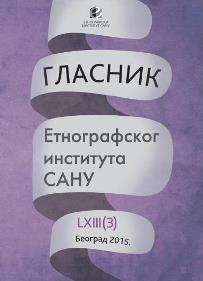
In this paper I look into the methodological, epistemological and ethical challenges I faced during multisided fieldwork research in the Serb community of southeast Kosovo (Gnjilane, Vitina and neighboring villages, and in several towns in Serbia where displaced persons from this area are now living). The focus of the research into post-war discourse was on two forms of migration: 1. the colonization of the population from the highland areas of south Serbia, which was carried out in Ko-sovo as part of agrarian reform in the period after World War I; 2. The migration of the Serb population from Kosovo into Serbia following the armed conflicts of 1999 and the establishment of a United Nations administration. In both cases these are mainly co-ethnic migrations: the settlers are of the same ethnicity as the population in the places they have moved to. Intra-ethnic relations and bounda-ries in the light of these migrations turned out to be an especially interesting field of research, which has opened up numerous methodological, epistemological and ethical questions.
More...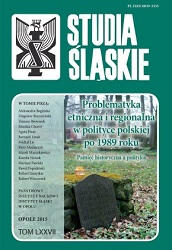
The polish law on national and ethnic minorities, headed by the provisions of the Polish Constitution, forms a support system that enables the storage, cultivation and development of distinctiveness of those groups. In 2015, it has been ten years since the Act on National and Ethnic Minorities and the Regional Language entered into force. In the article a reflection of political science, which covers the issues concerning the activities of the public administration authorities in the region in favor of minorities and the socio-political organization activity of these groups, was supplemented with practical wisdom. That wisdom was acquired by the author’s multiannual work as a representative of the provincial governor of Opole for national and ethnic minorities.
More...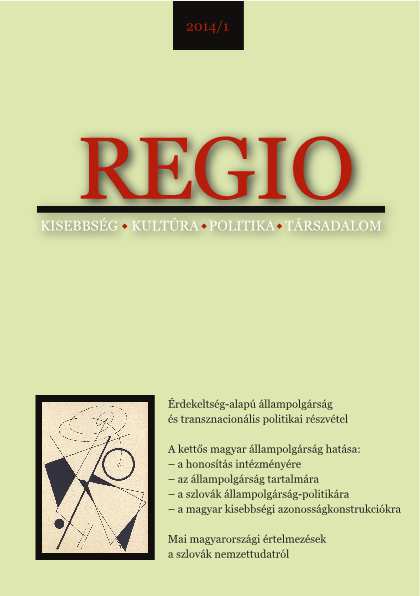

This paper discusses the current wave of separatism that swept the individual states of the European Union. Although there is one of the current phenomenon, due to various challenges encountered by the European Union in the last fifteen years (institutional unpreparedness for major expansion, rejection of the proposed Constitution of the European Union, the problems in the adoption of the Lisbon Treaty, the recession and the last migration crisis) suppress the background question secessionist activities of certain regions of the member states of the European Union. Therefore, the work seeks to actualize and scientifically elaborate on precisely these so-called. negative secessionist tendencies faced by Member States of the European Union, notably the United Kingdom, Spain, Italy, Belgium and even France.
More...
Some parties understand themselves as statehood and leading national parties - such perceptions in the public generally exist without important attempts of identification constitutional elements such self-awareness and attribution of ethnocracy as the regime which they establish and on whose ground function as well as their critical and pro-emancipatory dismantling. It is considered that such perceptions belong to the ideological imagination and it highlights to several assumptions on which it is possible to articulate such a dismantling and defend the meaning and value of democratic multi-ethnic states.
More...
Contemporary political organization of the state of Bosnia and Herzegovina is characterized by its complex internal structure and by the limited capacity and jurisdiction of the state institutions in relation to lower territorial and administrational units. Within such state system, alleged Unitarian tendencies of certain factors of the political establishment are presented as an attempt of achieving territorial and political domination and rule of the most numerous constitutive group over the others. Almost every initiative of strengthening the central state institutions is perceived as unitarism from this perspective. Likewise, promotion of the very idea of citizen, state or simply Bosnian belonging is presented as a process complementary to the presumed desired untarization of the state of Bosnia and Herzegovina. Such perceptions are one of the basic rhetorical tools in the speaking of the representatives of the so-called nationally-inclined political subject, primarily those of Serb or Croat orientation. Basic concepts and perceptions of the question or problem of unitarization are presented in the paper, with an analysis of realistic, possible ways of implementation or deconstruction of such a concept of organization of Bosnia and Herzegovina.
More...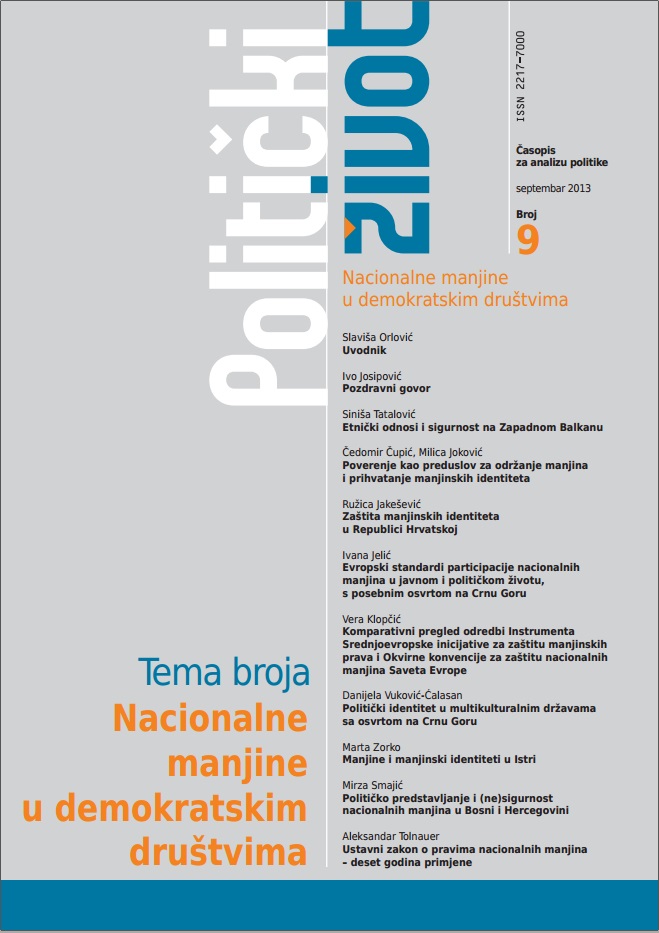
The paper discusses some characteristics of the Instrument CEI for Protection of Minorities, adopted by the Central European Initiative and the Framework Convention for the Protection of National Minorities, which were adopted in mid-last decade of the last century. Within the analysis of European standards of minority protection, the author focuses on the questions of the subject of minority protection, definition of the term national minority and on specific issues related to the regulation of the legal situation of Roma in international documents. In historical perspective, the author raises the hypothesis that the level of protection in a new European instruments corresponds to the political consensus, achieved after politica reconciliation in Europe, and reflects the limits of readiness of the states to assume their obligations toward different minorities.
More...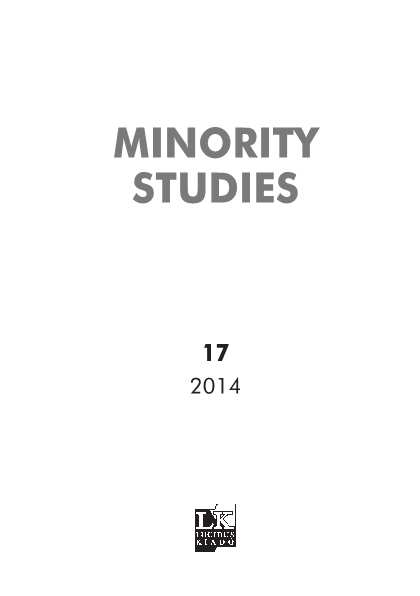
The schooling of children, their transition from kindergarten to school and from one educational level to another, sets the direction of their entire future career path, and it is usually embedded into parental decisions – be it conscious or determined by the environment. Besides the individual benefits (success), real or assumed, the outcome of these decisions and series of decisions has social and economic relevance affecting public good. From a minority perspective, these decisions may be coloured by further special aspects, since by choosing the language of schooling, parents opt not only for a school, but for a language as well.
More...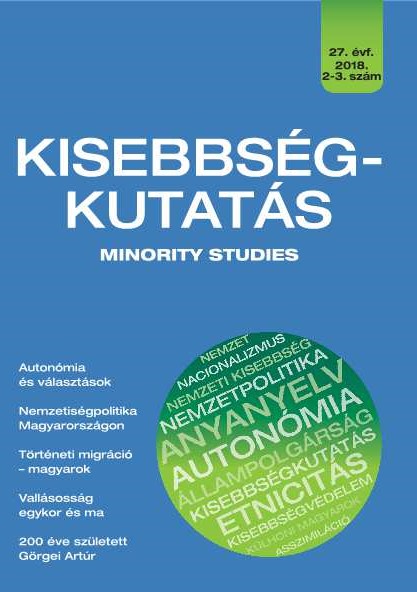
Mészáros Andor – Halász Iván – Illés Pál Attila: Visegrádi Kézikönyv. Esztergom, Szent Adalbert Kelet- és Közép-Európa Kutatásokért Alapítvány, 2017., 405 p.
More...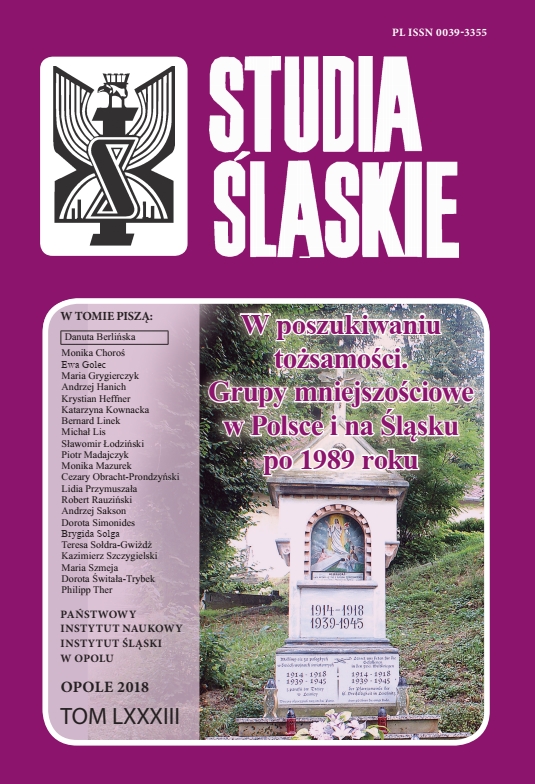
German minority is the most numerous and politically active national minority in Poland. Its largest cluster lives in Opole voivodeship. Since 1990, this minority has participated actively in subsequent elections. It fields its candidates in the competition for seats both in self-government and in parliamentary elections. Candidates of the minority receive voting support, the result of which is the presence of the representatives of the minority at various levels of self-government, co-governing –independently or in cooperation with various coalition partners, and even having a representative in the Polish parliament. The subject of this article is the demonstration of the presence of women on German minority voting lists in the years 2002–2015, taking into consideration the elections before and after the introduction of the so-called electoral quota, i.e. the provisions specifying the minimum percentage of women and men on voting lists. The author also refers to the issue of support which women standing for elections from minority lists receive from voters, as well as the issue of the presence of women in the authority organs of the German minority organisations in Opole Voivodeship
More...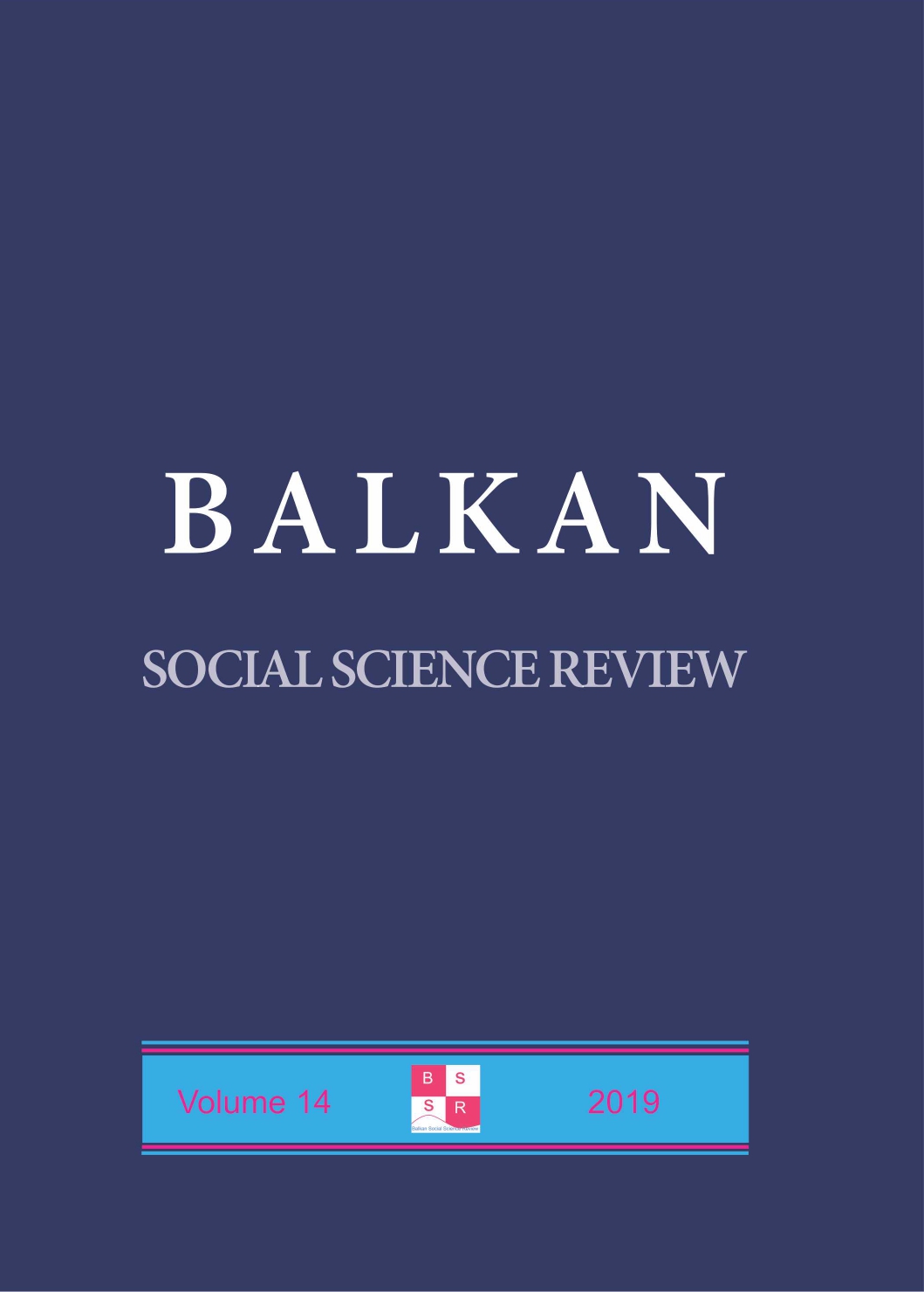
This article discusses the necessity to take into account the strategic importance of the Balkan region for the EU. The relations between the states in the region are entangled, with political, ethnic, religious animosities and security risks. The most important if not the only tool for the social and economic progress of these states and for improving the stability and security of the region and Europe as a whole is the step by step integration of all states of the region into the EU. Unfortunately, the road of Western Balkans (WB6) countries towards European integration and values has proven to be more burdensome and lengthy than many had hoped a few years ago. On the 6th of February 2018, the European Commission (finally) presented a new strategy towards the WB6 in which it resumed among other things also the responsibility to develop six initiatives aimed at supporting the reforms in the WB6 countries (Albania, Bosnia and Hercegovina, Montenegro, North Macedonia, Kosovo, Serbia). The Annex to this instrument contains a timetable for the announced actions, including the supervision of their realization. Almost all actions are supposed to be realized until 2019 at the end of the mandate of the present Commission. It is now of paramount importance that the new EU structure, which will be elected/appointed in 2019, develop new ideas and fresh operational policies towards WB6 in order to keep peace, stability and ensure the progress of the WB6 countries and the region as a whole. The author puts forward in the article some considerations that could be of use in further structuring and especially in implementing the new EU strategy towards WB6.
More...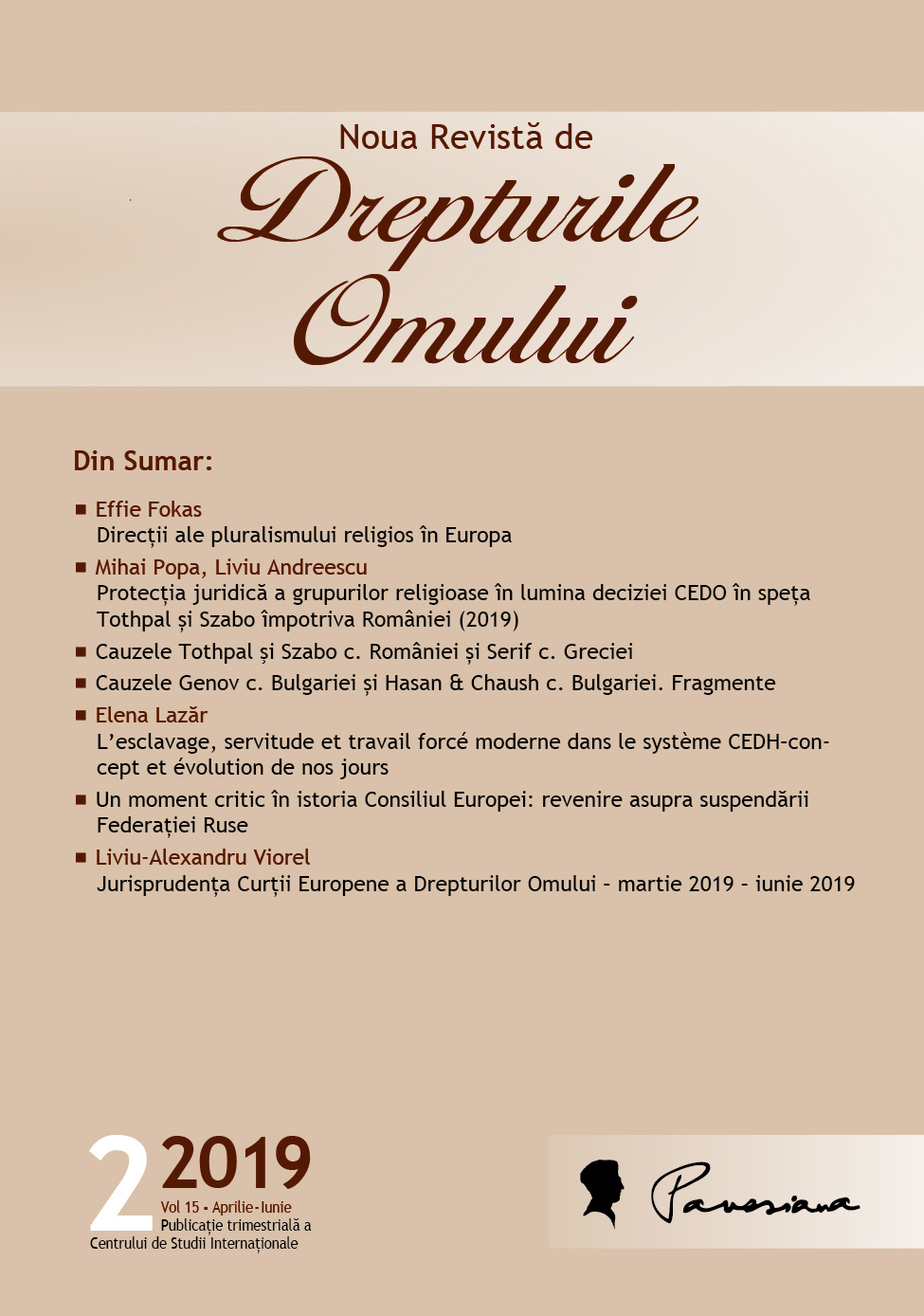
I analyzed the article "The two Hungaries, Transylvania and the Trianon", emphasizing the general aspects of its themes and theses, but also noting the relationship between the author, Dan Dungaciu, and relevant, important institutions, such as the Romanian Academy and the Ministry of Foreign Affairs. I followed the arguments made by the author in support of his position that the Hungary of today and the leaders of the Hungarian communities in Transylvania have irredentistic goals and therefore pose a danger to the Romanian control over Transylvania. Although he starts from natural grievances regarding the policies of Victor Orban and FIDESZ, Dungaciu goes beyond such issues to discuss the fundamentals of the Romanian-Hungarian relationship. I discussed at length the concept of the cultural nation, which plays an important role in the political culture of Hungarians. I compared the effects of granting citizenship to the Hungarian inhabitants of countries neighboring Hungary to the effects of the Romanian policy in the same area. I presented the elements that determine the faithfulness of individuals towards the political community to which they believe they belong. In the Appendix I highlighted the manner in which Ioan-Aurel Pop, the president of the Romanian Academy, has manipulated the text of the declaration of Alba Iulia.
More...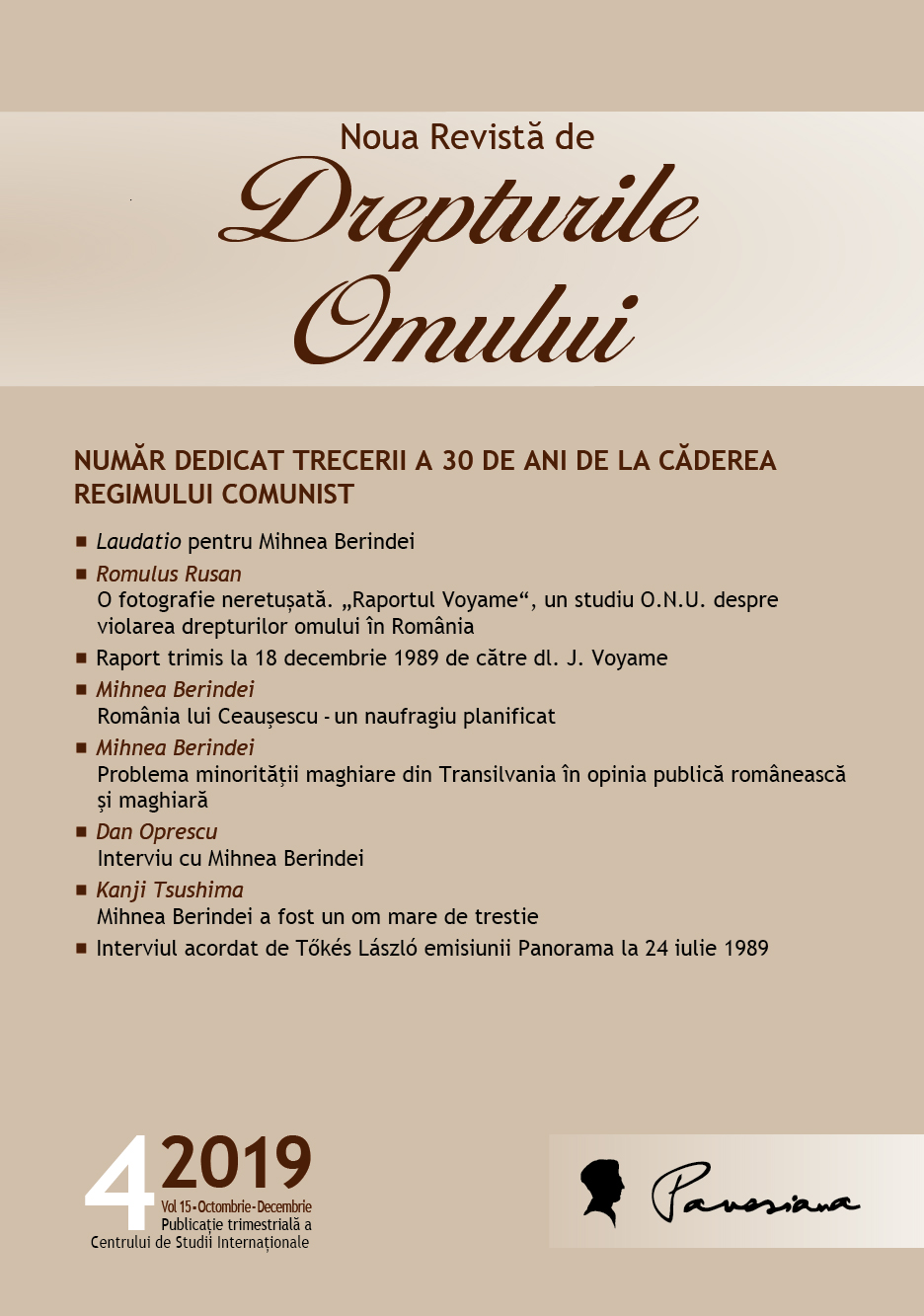
The issue of the Hungarian minority in Transylvania in Romanian and Hungarian public opinion
More...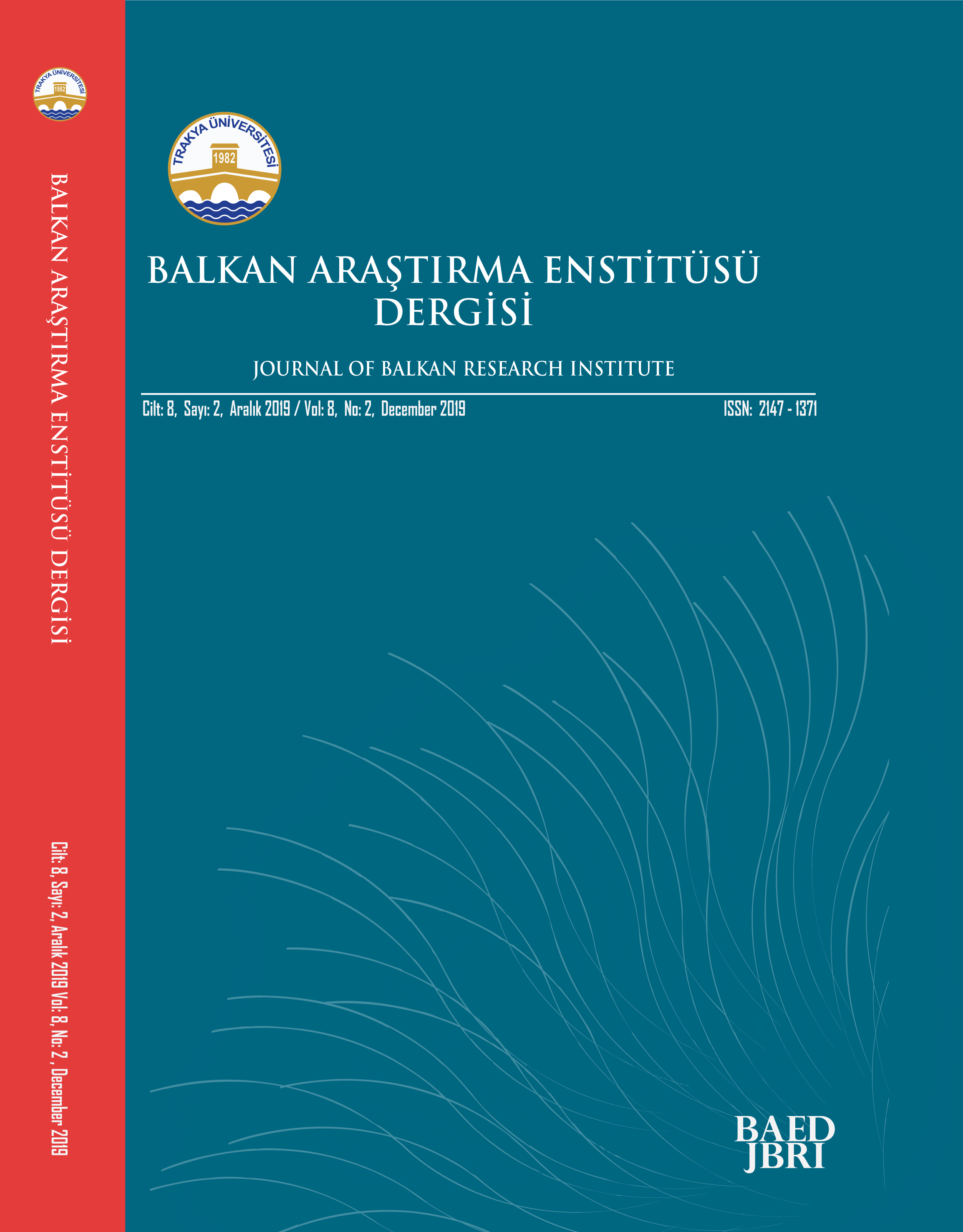
The EU, which is commonly referred as a soft power, is facing various challenges that limit its effectiveness in the international scene, most importantly in the Western Balkans. The transformative capacity of its soft power is not properly utilized in this region. This article explores the challenges to the EU’s soft power and evaluates possible ways for the Union to maintain its effectiveness adding new dimensions to its foreign policy in the area–specifically in the Western Balkans region. The primary issue addressed by this article deals with the immediate changes facing the EU as a soft power today. Given the fact that political mechanisms that EU utilized have proved to be ineffective in promoting stability, democracy peace in its area, alternatives should be considered. Meanwhile, a decade ago Turkey has proven its capacity to influence Western Balkan countries by creating and consolidating its soft power through various ways. However under the most present circumstances an economically weak Turkey is nothing but an actor
More...
The term Middle East has started to be used in the nineteenth century when referring to the region that included the Ottoman Empire, the Arabian Peninsula and the Balkan area. In contemporary the Middle East cluster (according to Globe‘s research) consists of: Egypt, Kuwait, Morocco, Qatar and Turkey, although the number of countries in geographical terms that is identified with this region is much higher. From the ethnical point of view this area is characterized by a relative homogeneity predominated by Arabs, lately in some countries (Kuwait etc.), appearing a large number of foreign immigrants attracted by the oil industry. This article will present the intercultural values that characterize it, the leadership style, as well as tracing the main macroeconomic considerations that characterize them. The research is synchronic, analysing the contemporary situation of these countries, and the analysis will be interdisciplinary exploratory, identifying elements with regional cultural specificity.
More...
The aim of this study is to analyze diff erent aspects of discrimination against the Sami in Swe-den. The article describes how the rights of the Sami were curtailed in the past and how the Sami questions are handled today. The study shows the causes of discrimin ating politics and the effects of discrimination (which are oft en still visible). The article explores whether the Sami in Sweden are still being discriminated. I also describe the rights of the Sami both as the indigenous people and as the minority in Sweden.
More...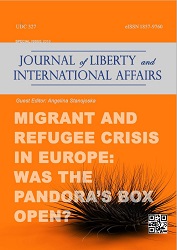
The “refugee crises” emerged as a term created by the European Member States, which had to face the higher number of asylum seekers since the Second World War. In the end of 2015, Europe, led by the German chancellor, Angela Merkel, proclaimed more welcoming policies toward asylum seekers coming from war-zones, in particular Syrians; who were recognized as the most vulnerable and in-need of a safe haven. Despite of this step forward towards an increasing acceptance of refugees, statistics show that the number of Syrians arriving in Europe seeking international protection remains low compared with Syria's neighboring countries, Turkey, Jordan and Lebanon. According to the United Nations High Commissioner for Refugees (UNHCR), between April 2011 and February 2016, Europe received less than one million (972,012) Asylum applications, while in the same period of time, Turkey registered almost three million (2,688,686) Syrian refugees, Lebanon more than a million (1,055,984) and finally, Jordan 637,859. Thus, all European Member States are currently hosting only around 22% of Syrians who are seeking protection, compared to Syria's neighboring countries. Moreover, an aggressive reaction towards refugees welcoming policies coming from strong European Member States' policy makers grew in Europe from the center and right-wing political parties, as well as from radical ideological groups.
More...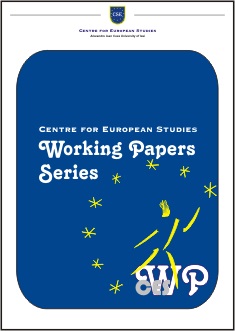
The occupation of Crimea determined the Crimean Tatars to react with obvious and clear-cut response: condemning the Russian aggression against the Ukrainian territorial integrity. This paper aims to analyze the post-2014 Crimean hybrid conflict situation of the Crimean Tatars, by investigating how the Crimean Tatars conditions have evolved under the Russian invasion forces for the last five years. In order to understand the post-2014 situation, the paper also focuses and examines the forced deportation (Sürgün or the Soviet Genocide), as well as Turkey's foreign policy reactions toward this regional conflict. Civil disobedience and nonviolent strategy of the Crimean Tatars have been used to pressure the Russian public opinion and political elites regarding the unlawful and unfair act toward the Ukrainian and Crimean sovereignty. In addition, the Crimean Tatars have voiced their concerns and demands in the international political arenas. Overall, the paper focuses on the repercussions of the Crimean crisis from political, psycho-social and international perspectives.
More...